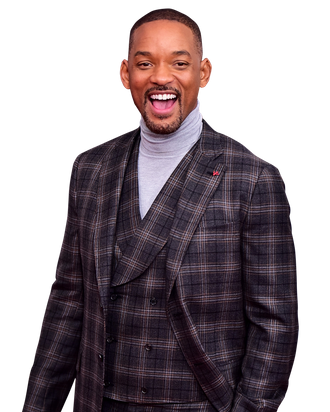
In Concussion, Will Smith plays Dr. Bennet Omalu, a forensic pathologist who published the first documented study of football players with chronic traumatic encephalopathy (CTE), a degenerative brain disease. The movie, which opens on Christmas Day, depicts Dr. Omalu’s fight against the NFL to publicize his findings — and with a remarkable amount of accuracy. In the lead-up to its release, our friend John Horn, host of the KPCC radio show and podcast “The Frame,” interviewed Smith about why football concerns him, what made him nervous about Concussion, and Hollywood’s diversity problem.

Earlier this month, Dr. Omalu wrote an op-ed in the New York Times arguing that children should not be allowed to play tackle football. More recently, an ESPN analyst said, “The war on football is real … concussion alarmists are loving it, the liberal media is loving it.” Did you imagine that Concussion would be at the center of this conversation?
I’m a football fan, so I’ve been following it for years. It seems obvious once you get into it that if you bang your head thousands of times, there’s a possibility that you could damage your brain. Yet when we watch the game, we are intoxicated by the beauty. So, for me, as a parent of a child who played football, the conversation is an absolute necessity. Because I had no idea. And if I didn’t know, and I was not concerned in the least, then I know there are other parents who don’t know. So I was deeply impelled, as a parent, to be a part of starting this conversation.
Did making the movie change your perspective on the NFL or youth football?
Absolutely. First off, for me, it’s not about the NFL. It’s not even really about football as much as it is about evolution and the truth. Dr. Omalu has a very powerful belief, as a scientific and spiritual man, that the truth moves us forward. More than anything, that’s what this film is about, and that’s the hope of the filmmakers: that at a minimum, people will open up to knowing.
You’ve said that professionally, you’re often motivated by things you find scary. Was that the case in this film?
Yeah, I was terrified with this one. When I first read the screenplay, it was really beautiful. Very well-written. But I just did not want to be the guy that said football was dangerous.
Why not? Were you afraid of what players would say?
Not afraid as much as dealing with the idea that there’s some stuff that people just don’t want to hear. A big part of my career has been based on comedy. There is nothing that people want more than to hear a joke, and I’m used to being on the side of giving people exactly what they want, the way that they want it. This type of film is more of an “inconvenient truth.” It was a different place for me. And because I love the game, and my son played, there was also a part of me that seemed like it could have been viewed as hypocritical.
When you look at your career and Hollywood, what are the things you worry about? What do you find encouraging? What makes you pessimistic?
I’ll answer your last question first. I’m not pessimistic. I believe in the power of the human spirit. I believe Hollywood, more than any other group of people, probably, other than the United Nations, is deeply forward-focused.
But in terms of the people they put onscreen and hire, they’re not.
Well, we have to look at the they. I am responsible for what I put onscreen. I’ve worked hard, I’ve made allies. And I can make anything I want. I believe that power exists for as many people as are willing to work and to seize the power. The executives in Hollywood are 90 percent white and male. So, most of the things that are going to be made will appeal to white males. If you come to my house, most of the people who work in my house are people of color. You know? If you come to my house, you would see a representation of my family.
I will never blame someone for creating and doing and building environments that suit them. I take the responsibility upon myself and upon my community of filmmakers and creative people to make those allies, and it is our fight, I believe, more than anyone else’s responsibility.
The problem, of course, is that there aren’t enough Will Smiths in the world. There aren’t enough people in authority who have your power to say yes to things.
I believe firmly in an integrated society where we all work together, and we build and create things that are good for all of us. But I also believe that people, when their survival is in question, embrace their reptile mind. And their reptile mind is not inclusive. And their reptile mind is not loving. When you put someone in a position where their job and family is in question, it’s a very difficult thing to ask them to grow and expand and to be loving. I don’t blame people for those situations. What I do is I separate fault from responsibility. It might be white people’s fault that blacks are in the position we’re in in Hollywood. But it is our responsibility to make the change. I don’t think it is their responsibility to make the change, no matter how much it might be their fault.
What is your next project as a producer? Are you going to put your words into action?
Yeah. I think the next project I’m producing is Bad Boys III. As an individual, as a family, as a company, we make it a point to employ and to train people of color to successfully integrate and wield power in this world of Hollywood.
You’ve played Muhammad Ali, you’ve played Dr. Bennet Omalu. When are you going to play President Obama?
I don’t know — he’s got to write the end of the story. As soon as he finishes the third act! We talked about that, me and the president, probably about six months ago.
I thought he wanted Idris Elba to play him.
He may have switched out. Idris has got that British thing. He sounds so intelligent. I’ll have to work on my Obama accent and show him I can do it better than Idris.

